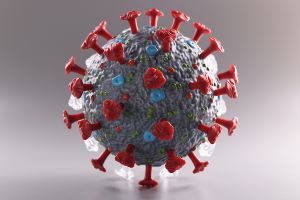September 28, 2023
by Elizabeth Pratt

Middle school can be rough.
Now research has backed up that if you’re not attractive or athletic in middle school, it can be a nightmare.
[More]
September 26, 2023
by Patricia Tomasi

A new study published in the Journal of Emotion looked at the influence of sleep on subjective well-being through an experience sampling study. “In the study we wanted to find out, how various indicators of sleep influence well-being on the next day. We were hoping to find multiple associations between sleep and well-being,” study author Dr. Anita Lenneis, from the University of Warwick’s Department of Psychology, told us. “We pre-registered our ideas of how the results would look like in advance.”
[More]
September 19, 2023
by Patricia Tomasi

A new study published in the Journal of Nature Mental Health looked at plasma proteomics discovery of mental health risk biomarkers in adolescents. “Our study primarily focused on discovering plasma protein-based susceptibility biomarkers that could indicate adolescents at risk of developing mental health issues,” study authors Katja M. Kanninen and Alexey Afonin from the University of Eastern Finland told us.
[More]
September 12, 2023
by Patricia Tomasi

A new study published in the Journal of Child Development looked at infection detection in faces and children's development of pathogen avoidance. “We were interested in understanding whether children ages four to nine years old can avoid and recognize sick faces,” study author Tiffany S. Leung told us. “Previous studies have reported that adults can use faces to recognize when someone is sick and make judgements about whether to approach or avoid them."
[More]
September 5, 2023
by Patricia Tomasi

A new study published in the Journal of Child Development looked at moral reasoning about gang violence by children and adolescents exposed to maras in Honduras and not exposed in Nicaragua. “My interest in child moral development and community violence involving gangs comes from my own personal experiences growing up,” study author Franklin Moreno told us. “My study is about how children and adolescents morally evaluate and reason about acts of physical violence associated with gangs that impact the communities they live in.
[More]
August 31, 2023
by Elizabeth Pratt

If you spend time browsing for activewear online, you may want to think again.
Research recently published in the International Journal of Consumer studies found that women have reduced self-esteem after online shopping for activewear.
[More]
August 29, 2023
by Patricia Tomasi

A new study published in the Canadian Medical Association Journal looked at household food insecurity and health service use for mental and substance use disorders among children and adolescents in Ontario, Canada. “There have been other studies that have shown that food insecurity can lead to behavioural issues among children and adolescents, as well as symptoms of mental health problems,” study author Kelly Anderson told us. “We wanted to examine whether these behaviours and symptoms are translating to clinically significant mental health problems that require contact with the health care system.”
[More]
August 22, 2023
by Patricia Tomasi

A new study published in JAMA Neurology looked at the characteristics of emergency department visits among older adults with dementia. “This study provides the first estimates of how often older adults with dementia utilize emergency services and the main reasons that drive such care,” study author Lauren Gerlach told us. “We anticipated that patients with dementia would utilize emergency services frequently but were unaware of what the main drivers of care were.”
[More]
August 15, 2023
by Patricia Tomasi

A new study published in the Journal of Sex Research looked at bisexual people’s health experience in primary care in English. “The study was part of a larger study where we used data from the General Practice Patient Survey (GPPS) from England across a few years to track whether disclosing/reporting of sexuality had changed over the years,” study author Carrie Llewellyn told us. “We found from this part of the study that reporting of being straight (heterosexual) was declining year on year and hence identifying as lesbian, gay or bisexual was increasing.”
[More]
August 8, 2023
by Patricia Tomasi

A new study published in the Lancet looked at the effects of COVID-19 on cognitive performance in a community-based cohort. “Many people report ongoing symptoms after COVID-19, including brain fog and problems with concentration, memory and attention,” study author Dr. Rose Penfold told us. “Previous research has shown that some of these people perform worse on cognitive testing. However, most of this research has been done in hospitalized patients who had more severe infection.”
[More]